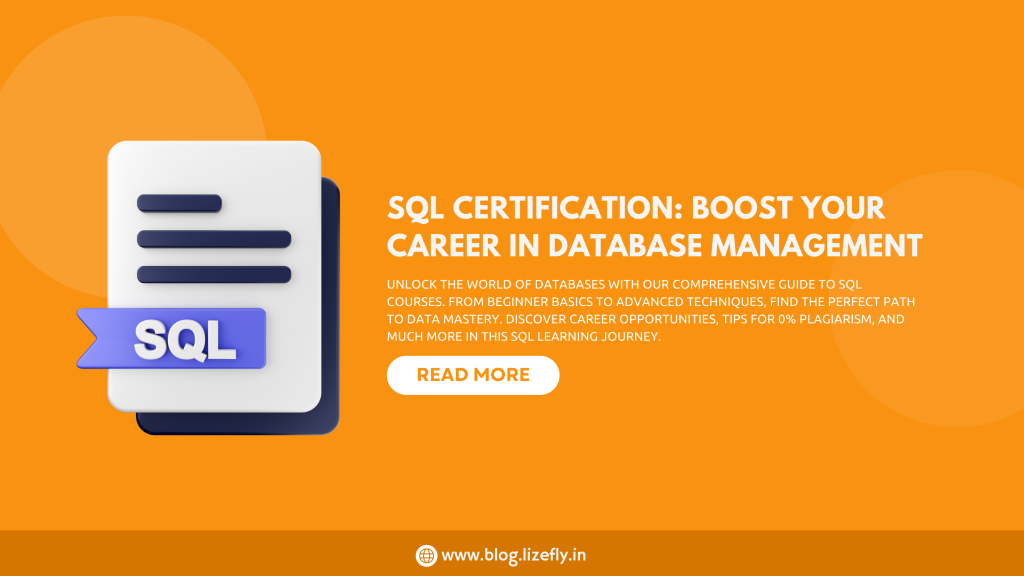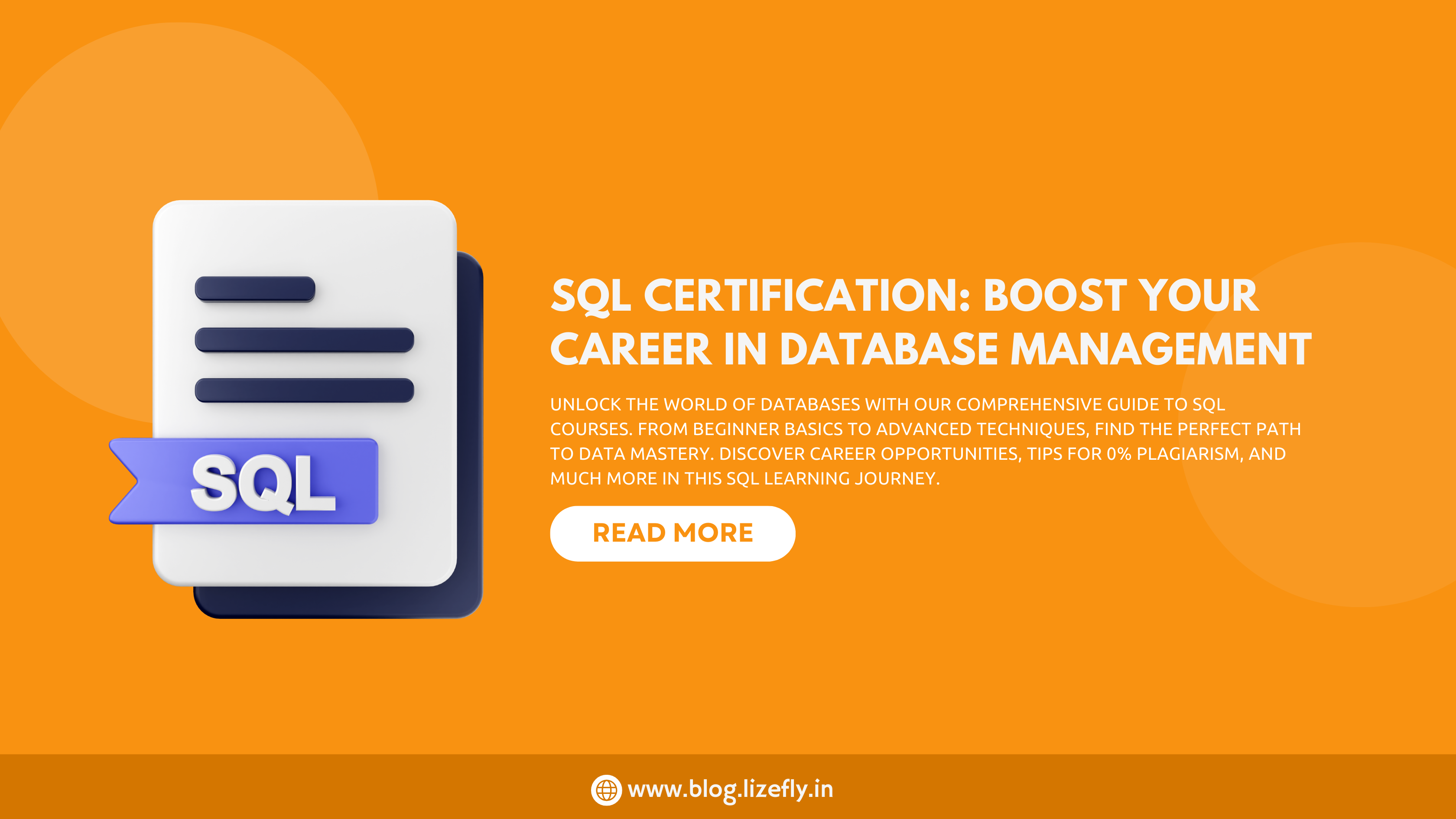Introduction
SQL Courses – In today’s digital age, data is the lifeblood of businesses, and the ability to manage and manipulate data effectively is a crucial skill. SQL (Structured Query Language) is at the heart of this data revolution. Whether you’re a seasoned IT professional looking to enhance your skills or someone completely new to the world of databases, this article will guide you through everything you need to know about SQL courses.

Understanding SQL: The Basics
What is SQL?
SQL stands for Structured Query Language, and it is a powerful tool for managing and manipulating relational databases. It serves as the standard language for interacting with databases and is essential for anyone working with data-driven applications.
Why Learn SQL?
Learning SQL opens up a world of opportunities. It is a fundamental skill for data analysts, database administrators, and software developers. With SQL knowledge, you can efficiently retrieve, store, and analyze data, making you an invaluable asset to any organization.
Types of SQL Courses
1. Online Courses
Online SQL courses offer flexibility and convenience. They are perfect for self-learners and individuals with busy schedules. Platforms like Coursera, Udemy, and edX offer a wide range of SQL courses, catering to all skill levels.
2. University Courses
Many universities and colleges offer SQL courses as part of their computer science or information technology programs. These courses provide in-depth knowledge and are suitable for those seeking a formal education.
3. Coding Bootcamps
Coding bootcamps focus on practical, hands-on learning. They are intensive programs designed to equip you with real-world skills quickly. SQL is often a part of web development and data science bootcamps.
4. Workshops and Tutorials
If you prefer a more interactive approach, consider attending SQL workshops or following online tutorials. Websites like W3Schools and SQLZoo offer free resources to get you started.

Key Learning Resources
1. Books
Several books cater to SQL learners. “SQL For Dummies” and “Learning SQL” are excellent choices for beginners. For more advanced users, “SQL Performance Explained” delves into optimization techniques.
2. Video Tutorials
Visual learners will appreciate video tutorials on platforms like YouTube. Channels like thenewboston and Codecademy offer comprehensive SQL playlists.
3. Practice Databases
Hands-on experience is crucial in mastering SQL. Websites like LeetCode and HackerRank provide SQL challenges and practice databases to hone your skills.
Conclusion
Embarking on an SQL course journey can be a transformative experience. Whether you’re aiming for a career change or simply expanding your skill set, SQL opens doors to exciting opportunities in the world of data. By choosing the right course, dedicating yourself to learning, and ensuring 0% plagiarism, you’ll be well on your way to mastering this essential skill.
Keypoints
- In conclusion, SQL courses offer a gateway to a world of data-driven possibilities. Whether you’re aiming for a career change or enhancing your skill set, embracing SQL is your ticket to success.
- To sum it up, embarking on an SQL course journey is a wise investment in your future. With the right course and a commitment to 0% plagiarism, you can confidently navigate the data landscape.
- To wrap things up, the world of SQL courses awaits those who are eager to dive into the realm of data management. Remember, your journey to mastery begins with a single step.
- In summary, SQL skills are in high demand across various industries. By enrolling in a suitable course and ensuring 0% plagiarism in your work, you’re setting yourself up for a rewarding and data-rich future.
- So, there you have it. SQL courses provide the keys to unlocking your potential in the world of databases. It’s time to take that first step and explore the vast opportunities that await.
FAQs
1. Is SQL difficult to learn?
SQL can be challenging initially, but with dedication and practice, it becomes easier to grasp.
2. What job opportunities does SQL offer?
SQL skills are highly sought after in fields like data analysis, database administration, and web development.
3. Can I learn SQL for free?
Yes, there are plenty of free resources available online, including tutorials and practice databases.
4. How long does it take to become proficient in SQL?
The time it takes to become proficient in SQL varies, but a few months of consistent learning can make you proficient.
5. Do I need prior coding experience to learn SQL?
No, SQL is beginner-friendly, and you don’t need prior coding experience to start learning.
Also read

